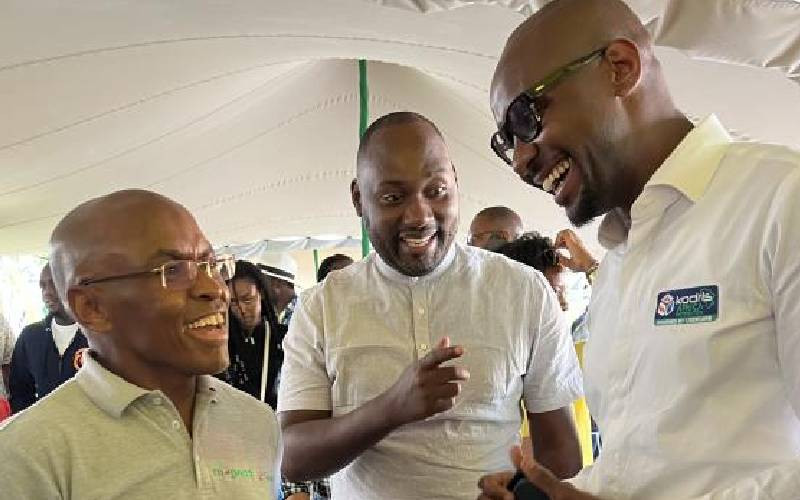×
The Standard e-Paper
Home To Bold Columnists

Safaricom CEO Peter Ndegwa, Kodris Africa Chairman and Founder Mwaniki Munuhe and Safaricom Acting Chief of Financial Services Boniface Mungania shortly after launch of M-pesa Go in partnership with Kodris Africa. [Jenipher Wachie, Standard]
Safaricom has announced a partnership to promote the study of coding syllabus through the purchase of lessons on an M-Pesa mini App.